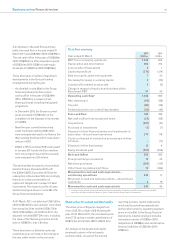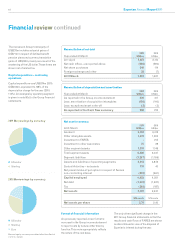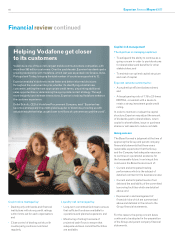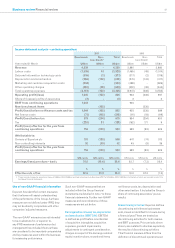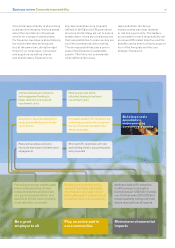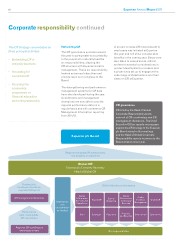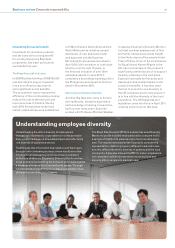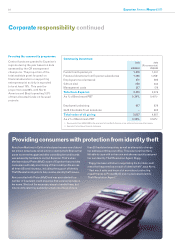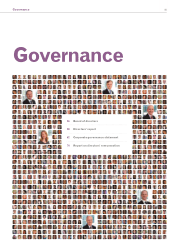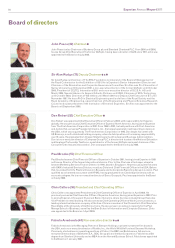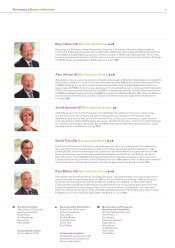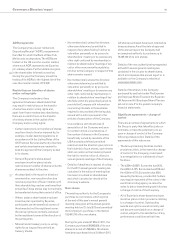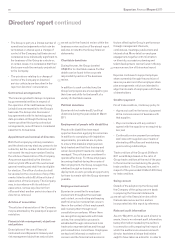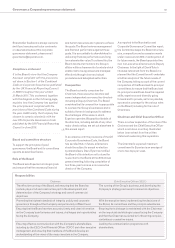Experian 2011 Annual Report Download - page 55
Download and view the complete annual report
Please find page 55 of the 2011 Experian annual report below. You can navigate through the pages in the report by either clicking on the pages listed below, or by using the keyword search tool below to find specific information within the annual report.
Business review Corporate responsibility 53
Understanding the ethnic diversity of employees is
increasingly important to organisations in order to ensure
their workforce draws on all available talent and reflects the
rich diversity of customers served.
Traditionally, this information has relied on self disclosure
through time-consuming surveys, where results are often
incomplete and skewed by factors such as inconsistent
definitions of ethnicity. Experian’s Diversity Monitor solves
these problems by matching the names of individuals against
a database of three million first and family names. Through
careful statistical weighting, it provides a consistent picture
of the ethnic mix of any list of names.
The Royal Free Hospital (RFH) in London has used Diversity
Monitor to profile its 6,600 employees and to compare this to
a sample of 75,000 of its patients and to the local catchment
area. The results have enabled the hospital to consider the
representation of ethnic groups in different roles and to see
how this reflects the ethnic diversity of patients and the local
community. It has also allowed the RFH to make comparisons
with important national trends when recruiting black and
minority ethnic people into medical roles.
Understanding employee diversity
Innovating for social benefit
Investment in innovative products
and services with a strong benefit
for society, Experian’s Big Ideas’
programme, has been particularly
successful this year.
Tackling financial exclusion
In 2009 Big Idea funding of US$150,000
was allocated to support research
into a microfinance opportunity
with significant social benefits.
The proposition was to improve the
efficiency of the microlending process,
reduce the cost to the end user and
improve access to finance. During
early 2010 the business model was
tested; relationships were established
with Microfinance Institutions and the
World Bank and an initial scorecard
developed. A new business model
was approved and the Experian
MicroAnalytics business launched in
April 2010, with a mission to contribute
directly, over the next 10 years, to
the financial inclusion of over 150m
unbanked-adults. In June 2010 it
completed a branchless banking pilot in
the Philippines and signed its first two
deals in December 2010.
Improving workplace diversity
Another Big Idea also came to fruition
during the year. Using the experience
and knowledge of naming conventions,
built up over many years, Experian
worked with Professor Richard Webber
to develop Experian’s Diversity Monitor
tool that can help analyse a set of first
and family names and provide insight
to the likely origins of the people listed.
Trevor Philips, Chair of the Commission
for Equality and Human Rights in the
UK, has commented on the product’s
significant potential as a tool to support
diversity planning in the workplace.
Experian has made its first sales and
developed case studies based on the
product’s benefits. It has also used
the tool to look at its own diversity in
the UK workplace and to help ensure it
is in line with the diversity of the local
population. The UK Equalities Act
legislation came into force in April 2011
creating more focus on this area.


